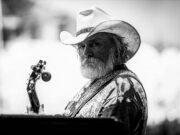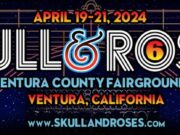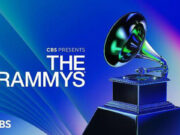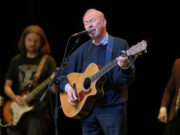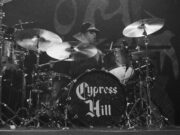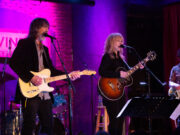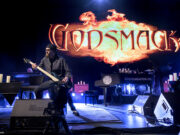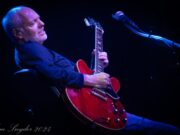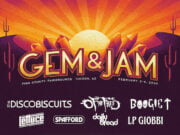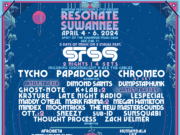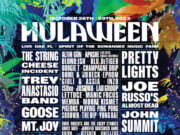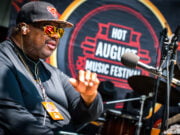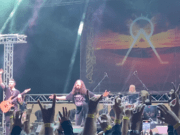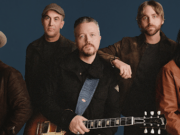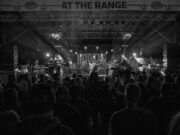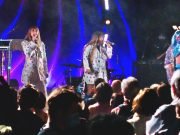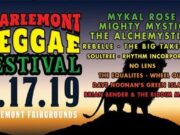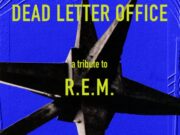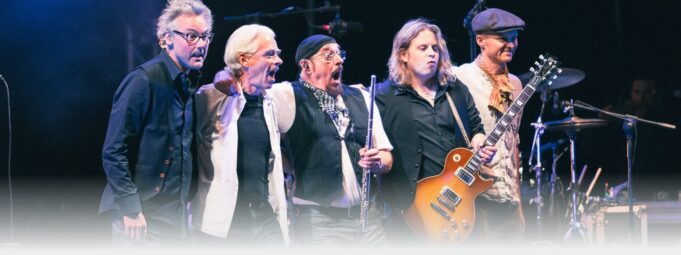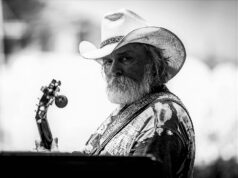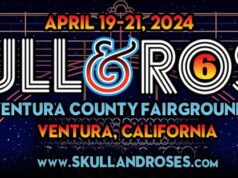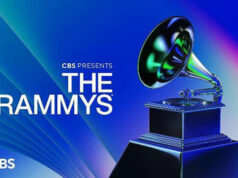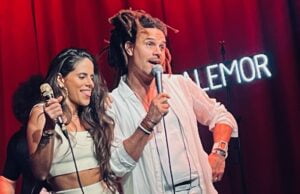There are not many bands that have made it to fifty years of creating music, both in the studio and in front of audiences around the world. Ian Anderson and his legendary rock band Jethro Tull have done just that, having produced numerous albums that have garnered them millions of fans and made them a staple of rock radio.
From the Grammy awards to the Soviet bloc- Anderson and his musical compatriots have trotted the globe bringing their unique blend of influences to adoring fans. This year they are celebrating a half century of music. I was lucky to catch up to Anderson for a lengthy and exclusive interview.
LMNR: After the many decades involved and the number of great musicians that have passed through your band- what does the band name Jethro Tull mean to you? Not the origin of the band name, but the spirit of Jethro Tull versus, say, an Ian Anderson solo tour. What can fans expect these days of Jethro Tull?
Ian Anderson: I think for me that whenever I associate with touring in the context of it being described as Jethro Tull, I think of JT as the repertoire, the music, the catalog of the music that was recorded over the years that was recorded under the name Jethro Tull. “Ian Anderson presents 50 years of JT,” it is descriptive of the music and the repertoire. When I do Christmas concerts, it is billed as Ian Anderson Jethro Tull Christmas concert… For me it’s all about repertoire and music.
The second thing is that 36 other musicians have been in the band over the years. That is always in my mind, especially when I play songs that take me back to working with previous musicians, the early days.
First of all, it is the repertoire, secondly it is the musicians who performed on those songs.
LMNR: I remember as a younger man I looked at the liner notes of Songs from the Wood and the list of instruments you play on that album is impressive. When you meet someone, who may not know your rock and roll history and you are asked “What instrument do you play?” in your heart, what do you believe?
Ian Anderson: It is really very simple, to most people first and foremost I am a singing flute player, and I would describe it in those terms. I don’t call myself a vocalist in the sense that you might describe Bruce Dickinson of Iron Maiden, or Robert Plant or Roger Daltrey, they do what they do and they have amazing voices. For me, I have never felt that confident about my singing, I became by default the singer because they couldn’t sing at all or pretended that they couldn’t.
I think of myself conveniently as a singing flute player, who sings because I wrote the songs. We also have to remember that most of the songs were written on acoustic guitar, and in most of the songs I play acoustic guitar, so I might describe myself as a singer songwriter acoustic guitar player. The point of difference for others is that I play the flute, and it is a convenient thing to hang my hat on. My sense of who I am, looking at the big picture, thinking of Jethro Tull, over the years, that’s what sets us apart from other bands. It’s the only band that the flute is a lead instrument equal to the electric guitar in terms of the dominance of the solos, and big riffs and so on.
LMNR: Classic rock folk lore has Thick as a Brick as originally intending to be a lighthearted, perhaps even a comic take album on prog music. Now that the years have passed and it has become a prog and classic rock iconic album- how do you reflect on your original intention versus how the album has been received by history?
Ian Anderson: I think that the elements of the album and its presentation in terms of album cover and liner notes, it is still very much tongue-in-cheek. Like lots of things that are designed to amuse “to be a spoof or a parody” they sometimes have a serious side as well, in a point it’s trying to make… whether it is political or social like big subjects like religion- Monty Python’s Life of Brian, on the one hand it is a spoof of biblical events but on the other hand it has an underlying seriousness, as it makes you reconsider your thoughts on celebrity of being the messiah.
I think that perhaps in that vein, that is where Thick as a Brick came into being, as it was the early era of Monty Python. I sat down to exploit the British humor, which is a little surreal. When you take it from radio, post war radio in the 60s and 70s, developed this rather surreal form of oddball humor. It didn’t necessarily translate to anywhere else until maybe Benny Hill, in a silly kind of send up way, slapstick humor catching on in the USA and Australia. But Monty Python was a slow burn that took a long time for that humor to work in America. Eventually it did, and of course it spawned in its own way lots of great American humor in the decades that followed. In a way it owes something to Python, due to the surreal nature.
That was 1972 that is where I guess I was getting those notions from, to be A. surreal, and B. beyond reality and to parody and send up certain institutions of Britishness. In doing so, under the umbrella of prog rock, I was in a way sending up the whole notion of the concept album and prog rock as it had become known in that period of time, having started off in 1969 with the more gentle sound of progressive rock.
Once it became prog, there was an element of send up and perhaps certain bands, perhaps Yes or ELP and Genesis having taken it to a bit of an extreme, where it was becoming rather self-indulgent. Musically great but self-indulgent and perhaps pompously setting themselves apart from rank and file musicians like the rest of us who were still learning to play our instruments.
LMNR: The setting of your music, particularly in the first era of your band had a medieval and natural world feeling to it. What artistic influences brought you to this particular feeling? Were you a Tolkien reader as a youngster? Lloyd Alexander? Did you enjoy the paintings of Audubon or [photography of] Ansel Adams? Is there an origin to the Jethro Tull sound that predates the band in terms of your influences that are nonmusical?
Anderson: Well, like many people who went on to become the good and the great of pop and rock music, I learned my music not at music college but at arts college, like many British artists. In some ways there are elements of painterly arts in the musical arts, that are echoed in the musical arts even the words used to describe painting- line form, tone, color- also have a strong resonance in descriptions that are strictly musical. I think that many of us who went to arts college in the 60, came out of that experience infused by the creative world.
Perhaps a little disenchanted by the time it took to execute painterly work, as opposed to music which was so immediate and so entertaining to an audience, which would cause audience to react immediately and real time, they responded- painting might take time to do and cause you to wait until you were dead before someone might say that is really nice, I rather like that painting. Music was the outlet for many of us- who began in the painterly world. A lot of things that are musical in my world, are from images in my head, half remembered- with a photographer’s eye.
When I was a child I was interested in the technical process of photography and imagery and I was given a camera. I was always excited by the process, but also the imagery. As a young teenager I read books about photography and marveled over the images of black and white photography. Naturally speaking I see things with my mind’s camera, through the lens of my eyes. I do tend to see things in a pictorial way, and it becomes songs- things, pictures that I see and remember and the visions.
LMNR: I did just hear an interview with Def Leppard and Joe Elliott noted that he went to art school. It does sound like many of you English musicians had your origins in art school.
Anderson: I didn’t know that Joe had been to art college, there ya go. Few of us didn’t. Many of us who hail from up North, went to provincial arts school: Not like in London, like Slade or Central College, we went to provincial arts schools that were out of the way, that seemed unimportant but they did produce a huge number of painters but also musicians of the day. It’s been an incredibly important part of English culture, the way an art education informed and excited generations of young musicians who went on to become musicians while they were there or subsequently.
It’s a very Brit phenomenon- in some other places they study music to become musicians.
LMNR: The music business is so different than it was when you got started. With a band as both unusual as Jethro Tull, and as successful as you have been- do you believe that something as creative and different would be able to be launched today?
Anderson: From time to time it is, but different in different ways. There is a bustling amount of room out there for a new band to come along with the flute as a lead instrument, I’m sure that there are people who could do it, but they would suffer endless comparison to me. If you play the flute in a rock band, there’s a bit of a comparison that will come up time and again. I rather suspect that there are a few people who put their instrument back in the case and thought maybe I’ll just play guitar instead. I was a guitar player who became aware that there were so many out there, and I should find something different to do. That’s the name of the game, trying to be different. And if you can, in any day and age.
If it’s “good” different, then people will sit up and go Wow, that is interesting and new. It is harder to do that than perhaps when I started off, as so many people who have done so much over the years. You are almost invariably reinventing the wheel. Even rap, and all of its subgenres, it’s been around since the end of the 70s, it’s been with us for a long time. The technology of synths, sequencers, samplers, much of that stuff has been around for a long time. Even with Thick as a Brick we use the earliest analog synths, by the time we hit the 80s [with] its samplers, we’ve been involved with that over the years.
For the most part we play our instruments in the time-honored tradition of playing them in real time. When we make records, it is rather like the band being on stage with overdubbed vocals later for technical reasons.
We tended to make records, was played in the studio in the same ways that we recorded Thick as a Brick. We try to get the balances, run throughs, and then Take One! That’s the way we’ve tended to work over the years.
Along the way we played with new technology when it was new. Now it is not new anymore. That era that is defined as computer-based, digital, we have to go back to that watershed period of the 80s. In that sense, we are talking about more than 35 years since that has been with us. It is hardly new music anymore.
LMNR: Is there anything about your personal creative process that has changed in the last decade or so that is reflective of technological options available to you now- whether that be in the studio or streaming music or the internet? Are you making different musical decisions based on the technology available to you?
Anderson: Yea, very much so, we use my studio here for rehearsals, rarely for recording, because I may as well have go to a studio and have someone else press the button there, when it comes to doing the rest of it, I am doing it at my office desk. Like Steven Wilson who has done remixes of 11 Jethro Tull albums now, he works from his iMac computer with an uncluttered desk, mouse, keyboards and a lot of plug-in technology. He doesn’t use a big huge mixer, he works on some of this stuff for me when he is on tour on his laptop and headphones. I have had emails from him from Tokyo and I am in South America, and we are exchanging emails from dressing rooms working from things that really seem to be esoteric and faraway, but it’s just another tiny thin layer of difference from what we used to do and what we do now.
We don’t need big mixers and huge amounts of physical technology, you can make an album of great sophistication with your laptop. There have been times I did vocals on a laptop while the guys are doing their own takes. I could do it anywhere really. I just need a high-quality mic and an interface, I can do it pretty much anywhere. For practical reasons I choose a nice quiet decent sounding place.
A lot of my work is just sitting in front of the computer with the technology that I have now that I didn’t have 20-30 years ago. It doesn’t change the way I make music, but it does change how I progress the idea to music. I can do the master mixes of a multi-track album in 24-bit 96k or whatever standard that I choose, the highest quality of digital recording- I can do that nearly anywhere.
When you get drums and bass and noisy people, you then have to go back and do that in weird isolation, or you just bite the bullet and say Let’s just play it. Then you go into someone’s studio, and you record it in a traditional fashion with lots of mics, someone else’s studio, huge amounts of technology, but once it’s on tape, all of the rest of it, more than half of what really goes into what makes a finished track, is not the recording of the backing track. If you build into that the arranging and rehearsal, twenty percent of the time is the finished tracks, the rest is preparing and the over dubbing, the final things you put on, vocals and flute: the bips and bobs, and the mixing, mastering. The recording of most of the music that people hear is only twenty percent of the workload.
LMNR: In America we are going through a cultural upheaval in terms of equality, gender roles and so many other aspects of life. Rock and Roll when you started was a much different environment. How do you imagine rock and roll would have been different with today’s values (#MeToo movement)- would the crazy “sex drugs and rock n’ roll” concept even exist?
Anderson: I think that popular music generally speaking from the age of American jazz between the wars and on through, that was a huge cultural upheaval that spread into Europe even in the period between the wars, American jazz in Europe was becoming hugely important and popular import from the culture of another country, even in Nazi Germany. The 50s / Post WWII we saw huge development in media and tech, radio, TV. I think by the time we got to the early 60s there is a period of roughly 10 years or so that is a huge watershed of global culture change, not that it happened simultaneously, what happened spread right across the planet. Media technology, but the creativity of Britain and the US (the major players in the game) a huge amount in the music world, we certainly are, especially in film and TV, it’s a strange phenom that so much happened in that time.
The freedom marches in Alabama, the issue of human rights, the Vietnam War, the gradual persistent emancipation of women, to allow increasing equality- there will always be people who say it’s still not fair, compared to how it was in the 20s and 30s, we saw a huge watershed in the 60s. Women can go on to university, get a job, the world was open to them if they wanted to seek the alternative to being a housewife- back then, nothing wrong with that.
These days, with birth rates in most countries falling, in western culture, to in Europe about 1.6, Britain about 1.8, in America above 2%. People still choose to have more kids in the US, generally speaking rates are falling, which is a bit of a godsend, due to a hungry planet with increasing population with the need to feed in decades to come and in the context global heating. Those climate change deniers sadly are the flat earth society, the people who either deliberately choose to ignore due to their interests in fossil fuels, or in the politics of climate change denial. The reality is that we are having an increasing rough ride in producing food.
UN population predictions are that by the end of the century we can expect to see 11-13 billion people on Earth. Others think it will be less because birth rates are falling. Women are choosing to have fewer children, they want to have careers and jobs, and they don’t want to have to stay home.
Women are making an educated choice, with birth control or restraint. This is a great thing that is not echoed all over the world. Even in India rates are beginning to fall as people are getting more choices. In Africa it is the same old rates of fertility in certain countries. It is going to take a lot to change that. We’ll see the demographics globally change, as more children are born in the poorest circumstances and the desperation to migrate to areas where there is a potential of future for people will increase as we’ve never seen it before.
So, Mr. Trump’s wall, for example: you would have to build a wall around every country to deal cope with immigration. We’re going to have to absorb those people. We can expect a very different demographic in my country and Europe whether we like it or not. We do accept a huge number of genuine refuges and economic migrants. Things are changing, culturally. Changes, food, diet, religion changes. You can deny it and pretend it’s not happening or try to enforce ways to not allow it to happen, or you have to accept that is the future. For the next 100 years we will see a lot more black Africans around the world. We will have to cope. It may be Trumpian wall or gentle absorption to try to get people a better life. Accept them as incomers or potentially people to come and live and work. Some countries like Germany, with a fertility rate of 1.6 with a declining population- that allows immigrants to come and work in factories and public services.
Things are a whole lot different now from how they were. We’ve been in my life, seen enormous changes, perhaps some of which is reflected in the music. As a song writer I might reflect certain things.
In our little way we help to bring about changes. The former Soviet bloc, Latin America, certain fascist cultures- western pop and rock brought about gentle and inevitable change. I thanked Mikael Gorbachev several years ago personally when I met him for doing what you did for allowing my music to be released on the state label Melodia records. Jethro Tull and the Beatles were the first among the first released and sanctioned western acts. That helped to loosen the safety valve, of a changing society, and to bring about a bloodless revolution in the wake of the Cold War years which were pretty terrifying.
In different ways, my peer group and I, we traveled around the world and brought western culture to many different countries, and I think that has been an enormous change, and usually for the better.
Think of American television: The Walking Dead plays in 120 countries in the world, the highest rated cable TV show, in the history of TV drama. It has a huge cultural impact, upon people all over the world, oddly- of course it is very violent and distinctly confusing and unpleasant, it is an example of US culture spreading around the world. Lucille Ball kicked off that sort of thing. I remember as a young teen seeing American soap operas playing on British TV giving us a sense of what America was all about. The music of Elvis, subsequently a lot of American music, particularly jazz and blues became the starting point for so many Brits of my era.
There are a huge number of changes. It was a great time to be alive and kicking in the creative arts. The early 60s for the next 20 years. It’s radical how much Britain and America changed the world.
Poor old Germans would love to do the same thing, they build great cars but do not have much in terms of international hits. There’s a single French artist or German artist who became globally successful- but each country only has 1 or 2 that cross over into internationally known, compared to the hundreds or thousands of American and British artists that have become known globally in the last fifty years.
LMNR: Some of your material from the 1970s explored some of the darker sides of human nature, some of the characters might even be thought of as perverse or debaucherous, by these standards. Would you hesitate to write in this way given changing cultural norms?
Anderson: Absolutely, there are certain songs that are deeply, in today’s context that would seem insensitive and politically very incorrect. That might not be the obvious ones, I don’t think that I have touched much on religion, which I think I would have to rewrite today.
There is one line in “My God” from the Aqualung album, where I refer to the bloody Church of England, that might ruffle feathers, when I do it in cathedrals as fundraisers for buildings and maintenance, and so on. I sometimes have a little editorial moment, change the lyric to avoid the use of the bloody… not the vernacular “bloody” English terms, but rather the literal history of the Church of England, as with most religions, having violence and bad stuff associated with it. I might be tempted to change that if I were revisiting. Everything else I stand by as it is my reaction as a young teen, to the confusing world of religion and how certain aspects of religion tend not to be about spiritual side but seem to be more about controlling, the power grabbing and material side of things.
I am kind of careful about things. There’s a song from the Stand Up album, “Fat Man”- the lyrics of which are, “Don’t want to be a fat man/ People would think that I was just good fun.” It may be insensitive to people with obesity. Although the point of the song is making in a silly way, making a case for a large person when the punchline is “roll us both down the mountain, bet the fat man would win.” It’s not meant to be cruel, but realistic about the degree to which people of girth, of obesity, of heavy weight traditionally are ridiculed and made fun of. That’s what the song is about. It’s not meant to be picking on fat people, but rather to be sympathetic and expressing that people are people and shouldn’t be judged by physical appearance.
The way it comes off, the way the song is couched, it’s probably insensitive and I don’t perform it any longer. I think it will offend people. That’s not a bad song or insensitive but people will pick up on the wrong message.
There is another song “Budapest” from Crest of a Knave which talks in rather erotic terms about a young female athlete. But when you look at the lyrics it’s all about respect in the lyrics, it is about look and don’t touch, to admire the physicality of someone. It’s absolutely not for taking advantage. In that sense it is a respectful song but some of the words and notions are rather deliberately rather sexist and erotic because I want people to think about the degree to which you can admire the human form, male or female, clothed or unclothed. This is what I did in arts school, when I was seventeen and I was sitting in front of a naked woman, drawing vaginas. I have grown up with that kind of sensitivity and that restraint. The degree to which you can do something that is not sexually driven but touches upon the erotic, as indeed many of the great painters over the years have been able to do and usually be accepted as the great artists for what they are.
LMNR: Is the constant presence of technology like cell phones and cameras distracting to you as an onstage performer? Or how about walking around off stage, are you inundated in a way that you weren’t before with cameras / phones?
Anderson: Well if someone walks up in the street and wants a selfie or autograph, I’m fine with that, as long as it is one or two people, I am fine with that. I am not fine onstage in an audience and a paying audience I don’t want to be inundated with a barrage of buffoons with cell phones over their heads. It is very off-putting to have these lights in your eyes and flashing. It is also inconsiderate to the audience, who are there to watch a performance onstage.
What they are seeing is someone’s cell screen. That has got to be off-putting; I know it is, I have experienced it on the rare occasion I am in an audience myself. I left an Iron Maiden concert after about twenty-five minutes because all that I could see was cell screens. I couldn’t actually see the show. I gave up and walked. I’m sure that there are people who do that at our concerts. The inconsiderate nature of people and the use of the ubiquitous cell phone.
Restraint. As with the Christmas concerts in cathedrals- we touch upon, please do not use your camera. We are in a house of God, in a cathedral, show some respect. Here’s a tradeoff. Keep it off and in your pocket until the last nine minutes of the show / encore. And then you can get your phones out, take video, all that final little moment. That’s your gift for good behavior. I can do that in a cathedral with British audience but not at an outdoor festival in some part of the world where they wouldn’t understand or be appreciative.
Playing indoor theaters, not to do it, and not just for me but also the audience. It is not that it is just annoys me, but for other members of the audience who paid a lot of money for a ticket. There is always somebody who despite that we flash up on the screen, and yet two minutes later, they just cheerfully ignore it. As if they somehow think that it’s the venue who put up the sign. It’s not, it’s part of my show. I’m the guy who took the images, and I am the guy who positioned them in the context of the video. That’s me, I am asking them not to do this, in what I hope is a polite way. There will always be those people who just want to. Their argument is “Hey, I paid $100 I should be allowed to do what I want.” Well fine, but you are in the company of thousands who don’t want to spend their night watching the back side of your cell phone blocking their view. It’s about being polite to each other, not just to me.
I just came back from Italy which can be a very Latin crowd, and in four concerts I don’t think I saw anyone using cell phones. They saw the signs at the beginning and I didn’t see any cell phones, they were so well behaved, responsive, and watched the show, no cells in sight. What a wonderful thing, especially in Italy, to what is traditionally an emotional and Latin kind of culture.
You can’t generalize; you just have to put up with it. In the London theater, it is a regular stoppage now, that famous actors that have had it up to here in London theaters where they walk onstage if people put up phones and flashes. If you are an actor is worse than being a musician. I suppose I could turn around and face the other way if I want on stage, but actors can not, you are in character, you’re playing to people, you’re playing to a crowd. If something puts you off your lines, it is infuriating, famous actors have to stop and say I’m sorry, I can’t go on if you are going to do that. I’m going to go ahead and walk off stage we’ll pick up the pieces and we’ll carry on… it happens regularly. When I got to London theater, I see people who may not be used to the traditions and respect of being in a theater- and they behave appallingly, and they eat sandwiches and check cells, it is unbelievable how insensitive and rude people can be. Perhaps they never knew a time without cell phones.
Perhaps for them it is a real difficulty in understanding the cultural and social niceties of restraint. In a public place, watching a performance. They just don’t get it. They just don’t grasp how insensitive it can be for a performer. I am totally on the side of those thespians who just will walk off the stage and come back and try to rekindle that moment again.
It’s really bad thing to happen and it puts me off, the lights flashing. I forget the words and what I am playing the next line of music, I make mistakes. I can blame it on other people, but I wish I didn’t have to make a fool of myself by being put off by behavior, it happens, but it does not happen every night. Having done those Italy shows, it’s like Whoopee, I’m in a good mood when I get on stage. Where am I next? In Germany, hopefully they’ll be well behaved. We’ll see.
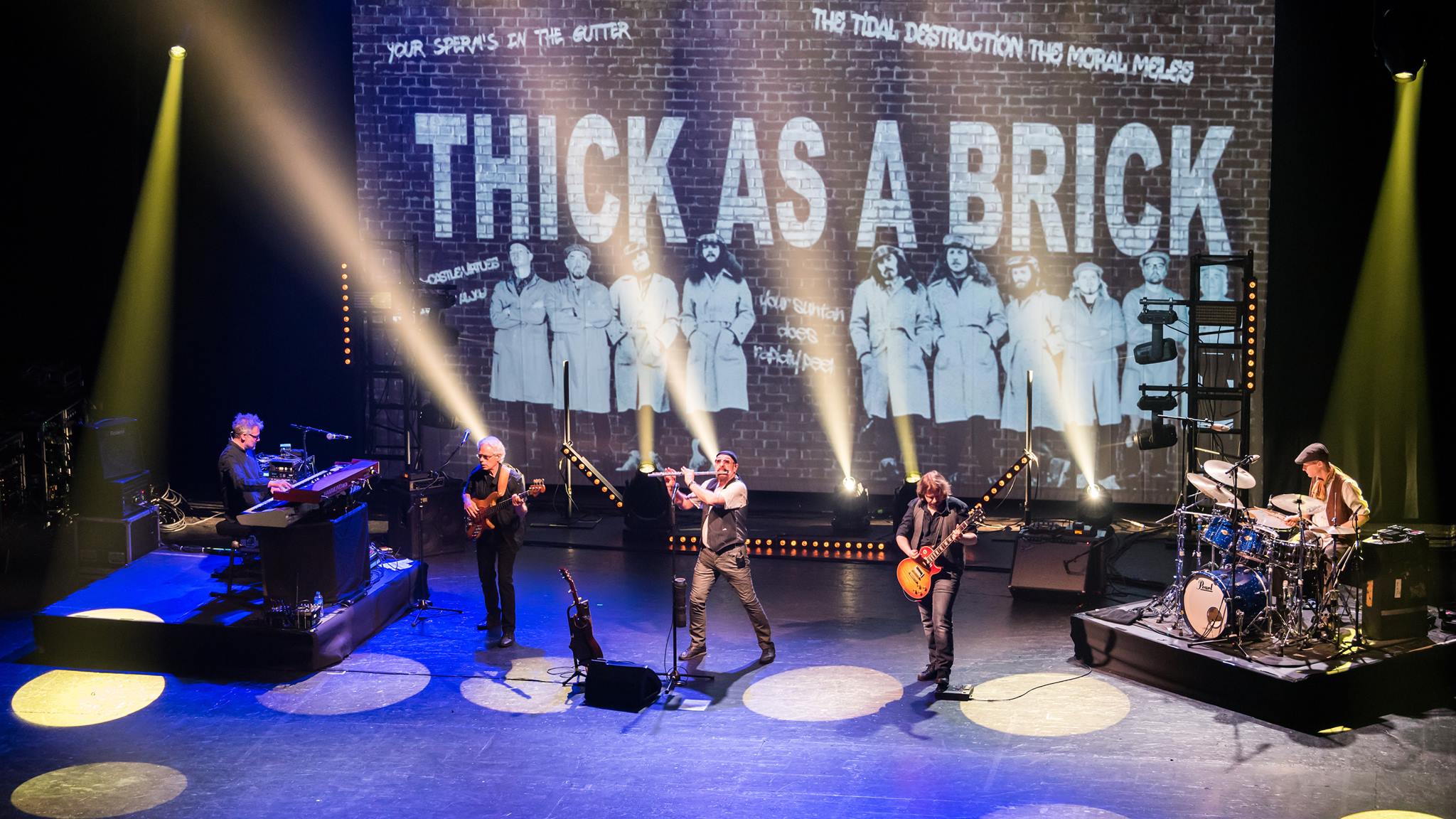
LMNR: Where do you see yourself today as a producer of original music? Are you still feeling creative? When you go out on tour is it about promoting new music for yourself, or preserving, promoting and demonstrating your musical legacy?
Anderson: Well, it is increasingly throughout anyone’s career, it will veer gently toward over a period of time toward the latter, where you are of course presenting the legacy of your music presenting, your repertoire which goes back forty or fifty years. As long as you are still adding something new, music, ideas- then you have the sense of self respect that you have to have as a musician that you are not just treading water and exploiting things you might have done long ago. You need that self-respect and feeling, even if you are wrong. Perhaps your best days are long past. If you have a feel that you are doing something new, I suppose- in some ways you can constantly be working to try to improve yourself technically through even singing old songs and to interpret the songs and be more refined. Musically speaking you are trying to equal and better your best performance.
As a flute player, I have been playing for an hour this afternoon. I am in the midst of a 6-day break. But I don’t let more than one day go by without playing the flute. I need to keep working on it, I need to keep engaging with the instrument in a very technical sense. That is something.. that increasingly as you get older you have to do that; you can’t just come off the road and walk back as if nothing had happened and do a sound check and a show. There is a lot of constant not exactly at rehearsal, constant practice that is probably the best way to say it, with an audience going through the detail of what you play.
In essence it’s riding a bike- you don’t forget, but if you want to ride really well, and you want to race, you are going to have to train. It’s the same thing, with doing what I do, I do have to prepare for tours and concerts.
Mick Jagger for example, going through his workout to get fit for a tour, that is when he discovered his heart problem. Now that he has gotten operated on, hopefully successfully. He will gently test his physical fitness again, to get back to her performance fitness just like any sportsmen, it will take many weeks to get back safely to that point again. Especially with heart surgery, you don’t overdo it too soon. You must need to be sure.
As we all get older, we really do have to be in good shape- not just physically, but in good shape technically, to perform the music that we do.
Mick Jagger just has to race around and shout into a microphone, he is not really a singer in that sense that of being meticulous in melody and intonation and all of the rest of it. He just shouts it out, that’s his whole shtick, is a pretty easy job to do, in some ways. But he runs around and does physical stuff that most people at 75 would not typically do.
But then most people would not be able to go on stage for two hours and sing and run around which is what I do. I don’t get to this point without being prepared. Every year I go through tests to make sure that I am in good health and not staring death in the face. If I go on stage and die with my boots on like a cowboy in a 1950s western movie… though that is probably the outcome, what better way to go? Wouldn’t it be awful if after 50/60 years as a performer to finally snuff it on a golf course? That’s not very rock and roll is it?
I’m going fishing today and I’m not coming back. I’m going to die on the riverbank having not caught anything, that’d be a terrible way to go. I want to bow out hopefully during the encore, having completed most of the show. I couldn’t cope with the idea that people might ask for their money back.
Be sure to catch Ian Anderson as he celebrates fifty years of Jethro Tull, whether in a theater, festival, or a cathedral.
The band for the upcoming tour with Ian Anderson and Jethro Tull:
FLORIAN OPAHLE, Guitar – 36, has been playing w/ Ian Anderson since 2003-
SCOTT HAMMOND, Drums and percussion – 45-
JOHN O’HARA, Orchestral conductor, piano, keyboards and accordion, has been playing w/ Ian Anderson since 2003-
DAVID GOODIER, Bass guitar and double bass, has been playing w/ Ian Anderson since 2006
| Jethro Tull 50th Anniversary Tour Europe | |||
| 10th April 2019 | Lingen | EmslandArena | Germany |
| . | |||
| 11th April 2019 | Bremen | Metropol Theater | Germany |
| . | |||
| 12th April 2019 | Flensburg | Deutsches Haus | Germany |
| . | |||
| 3rd May 2019 | Imst | Restaurant-Cafe Glenthof | Austria |
| . | |||
| 4th May 2019 | Singen | Stadthalle Singen | Germany |
| . | |||
| 5th May 2019 | Heilbronn | Festhalle Harmonie | Germany |
| 5th July 2019 | Indio | Fantasy Springs Resort Casino | United States |
| . | |||
| 6th July 2019 | Irvine | FivePoint Amphitheatre | United States |
| . | |||
| 7th July 2019 | San Diego | San Diego Civic Theatre | United States |
| . | |||
| JETHRO TULL performed by Ian Anderson | |||
| 19th July 2019 | Kulmbach | Plassenburg | Germany |
| . | |||
| 21st July 2019 | Saarbrucken | Congresshalle | Germany |
| . | |||
| 22nd July 2019 | Erlangen | Dechsendorfer Weiher | Germany |
| . | |||
| 2nd August 2019 | Calw | Kloster Hirsau | Germany |
| . | |||
| 3rd August 2019 | Hanau | Amphitheater | Germany |
| . | |||
| 15th August 2019 | Jerez | Tio Pepe Festival | Spain |
| . | |||
| 17th August 2019 | Bonn | Open Air Kunst! Rasen | Germany |
| Time: 5:00pm. | |||
| Jethro Tull 50th Anniversary Tour North America | |||
| 11th September 2019 | Medford | Chevalier Theatre | USA |
| . | |||
| 13th September 2019 | Bensalem | Parx Casino – XCite Center | USA |
| . | |||
| 14th September 2019 | Queens | ForestHills Pavilion | USA |
| . | |||
| 15th September 2019 | Uncas- ville | Mohegan Sun Arena | USA |
| . | |||
| Jethro Tull 50th Anniversary Tour Europe | |||
| 20th October 2019 | Heerlen | Theater Heerlen | Netherlands |
| . | |||
| 21st October 2019 | Haarlem | Philharmonie Haarlem | Netherlands |
| . | |||
| 22nd October 2019 | Utrecht | TivoliVredenburg | Netherlands |
| . | |||
| Ian Anderson Christmas Shows | |||
| 6th December 2019 | Wakefield | Wakefield Cathedral | UK |
| . | |||
| 7th December 2019 | Ripon | Ripon Cathedral | UK |
| . | |||
| 13th December 2019 | Wells | Wells Cathedral | UK |


